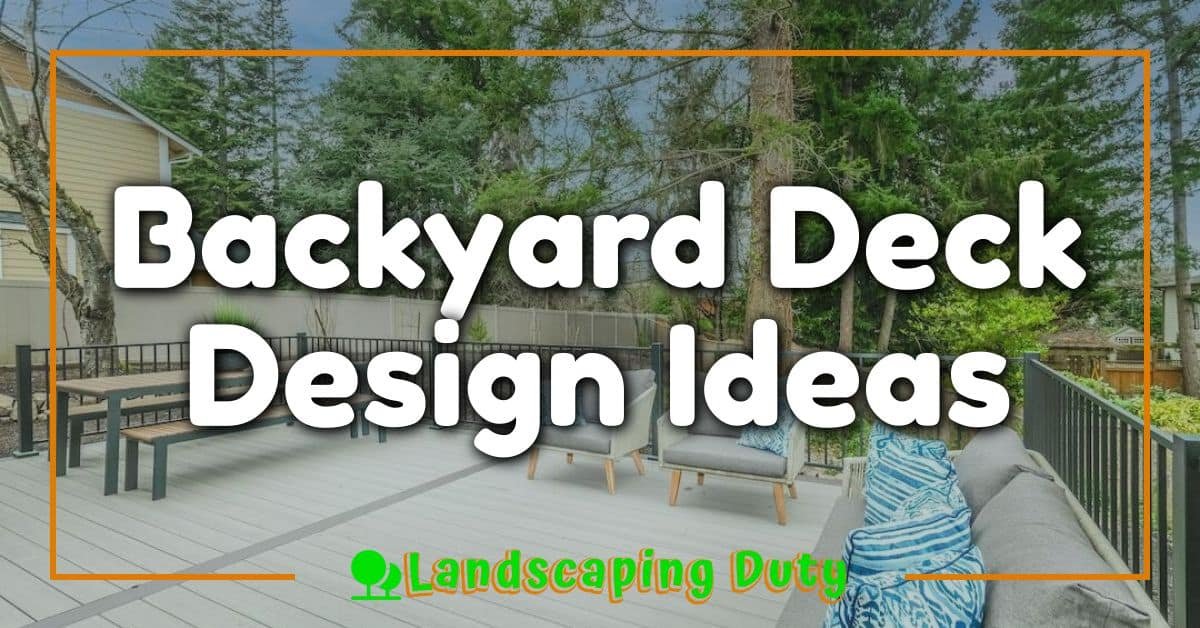Considering upgrading your outdoor space with pavers? We’ve got you covered! Pavers are a popular choice for patios, driveways, and walkways, offering durability and aesthetic appeal. In our exploration of the pros and cons of pavers, we’ll delve into the benefits and potential drawbacks of these versatile landscaping materials.

From enhancing curb appeal to providing a sturdy surface for outdoor activities, pavers offer a range of advantages. However, maintenance requirements and installation costs are factors to consider when weighing the decision to pave your outdoor area. Join us as we navigate the world of pavers to help you make an informed choice for your next landscaping project.
Understanding Pavers and Their Uses
As landscape designers, we understand the significance of choosing the right materials for outdoor spaces like patios, driveways, and walkways. Pavers are a popular choice for enhancing the appearance and functionality of these areas. Let’s delve into the different aspects of pavers and how they can be utilized effectively in landscaping projects.
Types of Pavers
When it comes to pavers, there is a wide variety of options available to suit different aesthetic preferences and functional requirements. From classic brick pavers that exude a timeless charm to sleek concrete pavers that offer a modern look, each type brings its unique style to outdoor spaces.
- Brick Pavers: These traditional pavers add a warm and inviting touch to any outdoor setting. They are versatile, durable, and come in various colors and shapes, making them a versatile choice for different design schemes.
- Concrete Pavers: Known for their durability and low maintenance, concrete pavers are ideal for high-traffic areas like driveways. They can mimic the look of natural stone or clay brick while offering greater affordability and ease of installation.
- Natural Stone Pavers: For a luxurious and sophisticated appeal, natural stone pavers are an excellent choice. Whether it’s the rugged elegance of flagstone or the refined beauty of granite, natural stone pavers elevate outdoor spaces with their organic textures and durability.
- Permeable Pavers: Eco-conscious homeowners often opt for permeable pavers that allow water to seep through, reducing runoff and promoting groundwater recharge. These pavers are an environmentally friendly choice for sustainable landscaping.
Common Applications of Pavers
Pavers are versatile materials that can be used in various outdoor applications, offering both practicality and aesthetic appeal. Here are some common ways in which pavers are utilized in landscaping projects:
- Patios: Pavers are frequently used to create stunning patios that serve as outdoor living spaces for relaxation and entertainment. The endless design possibilities, ranging from intricate patterns to simple layouts, allow us to customize patios to suit the client’s preferences.
- Driveways: Paved driveways not only enhance the curb appeal of a property but also provide a durable surface for vehicles. Using pavers for driveways offers flexibility in design, allowing us to create decorative driveways that withstand heavy loads.
- Walkways: Pavers are ideal for constructing walkways that connect different areas of the outdoor space. Whether it’s a meandering garden path or a direct route to the front door, pavers can be laid in various patterns to complement the landscape design.
- Pool Decks: Pool decks paved with slip-resistant pavers offer a safe and stylish space for lounging by the pool. The textured surface of pavers provides traction, reducing the risk of slips and falls in wet conditions.
- Garden Edging: Pavers are also used for defining garden beds and borders, adding structure to the landscape design.
Pros of Pavers
Aesthetic Appeal
When considering outdoor design, Aesthetic Appeal is paramount, and pavers excel in enhancing the overall look of any space. We love how pavers offer a wide range of colors, shapes, and patterns, allowing us to create unique and visually appealing designs. Whether it’s a classic brick pathway, a modern concrete patio, or a sophisticated natural stone driveway, pavers give us the flexibility to customize outdoor areas to suit various styles and preferences.
Durability and Longevity
One of the key advantages of pavers is their Durability and Longevity. As landscape designers, we appreciate that pavers can withstand heavy foot traffic, vehicle loads, and changing weather conditions without compromising their structural integrity. With proper installation and maintenance, pavers can last for decades, providing a long-term solution for outdoor flooring needs. This longevity ensures that our outdoor designs stand the test of time, making pavers a practical choice for various landscaping projects.
Maintenance and Repair Ease
Maintenance and Repair Ease are significant factors when selecting materials for outdoor spaces, and pavers score high in this aspect. We find that maintaining pavers involves simple procedures such as regular cleaning and occasional resealing, keeping them looking pristine year after year. In the rare event of damage, individual pavers can be easily replaced without disturbing the entire area, saving both time and money. This convenience makes pavers a preferred choice for homeowners looking for low-maintenance yet aesthetically pleasing outdoor flooring solutions.
Environmental Benefits
As landscape designers committed to sustainable practices, we appreciate the Environmental Benefits that pavers offer. Permeable pavers, in particular, allow rainwater to infiltrate the ground naturally, reducing runoff and helping prevent water pollution. By choosing permeable pavers, we can contribute to eco-friendly landscaping solutions that promote groundwater recharge and minimize stormwater runoff. Additionally, pavers made from recycled materials support recycling efforts and reduce the environmental impact of outdoor construction projects. With eco-conscious options available, we can create environmentally friendly outdoor designs that align with our commitment to preserving the natural surroundings.
Cons of Pavers
Initial Installation Cost
When considering the cons of pavers, one aspect that clients often inquire about is the initial installation cost. While pavers offer a range of benefits, including durability and versatility, the upfront investment required for their installation can be a concern for some. It’s important for us to provide transparent pricing information and discuss alternatives that may better suit our clients’ budget without compromising quality.
Weather-Related Issues
Another factor to keep in mind when discussing the drawbacks of pavers is their susceptibility to weather-related issues. In regions with extreme weather conditions, such as freezing temperatures or heavy rainfall, pavers can be prone to shifting, cracking, or damage over time. As landscape designers, we need to educate our clients about the maintenance practices and additional measures that can help mitigate these weather-related challenges and prolong the lifespan of their paver installations.
Weed and Moss Growth
One common issue that can arise with pavers is weed and moss growth between the joints. While proper installation techniques can help minimize this problem, it’s essential to inform our clients about the potential for vegetation growth and suggest suitable solutions to prevent or address it effectively. By offering guidance on weed barriers, joint sand stabilization, or regular maintenance practices, we can assist our clients in keeping their paver surfaces looking pristine and well-maintained.
Comparing Pavers to Other Materials
Pavers vs. Concrete Slabs
When considering pavers versus concrete slabs for outdoor projects, we find that pavers offer more design versatility. Pavers come in various shapes, colors, and patterns, allowing us to create unique and intricate designs that suit the client’s preferences. In contrast, concrete slabs have a more limited range of customization options and may not offer the same aesthetic appeal as pavers.
While both materials are durable, pavers generally outperform concrete slabs in terms of repairability. If a paver becomes damaged, we can easily replace the individual piece without disturbing the surrounding area. Concrete slabs, on the other hand, often require more extensive repairs if cracks or chips occur, leading to higher maintenance costs in the long run.
Pavers vs. Natural Stone
Comparing pavers to natural stone, we acknowledge that both materials have their unique charm. Pavers provide a uniform and consistent look, ideal for contemporary designs, while natural stone offers a more organic and rustic appearance that can enhance traditional or naturalistic landscapes.
In terms of cost, pavers are generally more budget-friendly than natural stone, making them a practical choice for clients with cost constraints. Additionally, pavers are easier to install and can be completed more quickly than natural stone, saving time and labor costs on landscaping projects.
Pavers vs. Asphalt
When we weigh the pros and cons of pavers against asphalt for outdoor surfaces, we note that pavers offer better aesthetic appeal and design flexibility. Pavers add a touch of elegance to outdoor spaces, while asphalt provides a more utilitarian look that may not suit all landscaping styles.
In terms of maintenance, pavers require less upkeep than asphalt. While pavers may need occasional re-leveling or joint maintenance, asphalt surfaces are more prone to cracking and deterioration over time, necessitating frequent repairs and resealing. Ultimately, the choice between pavers and asphalt depends on the desired look, maintenance preferences, and budget considerations of the client.
Making the Right Choice for Your Project
Assessing Your Needs
When it comes to selecting pavers for your outdoor project, we understand the importance of assessing your specific requirements. Consider factors such as the intended use of the space, foot traffic, design preferences, and budget constraints. By evaluating these needs thoroughly, we can recommend the most suitable paver options that will not only enhance the aesthetics of your outdoor area but also meet your practical demands effectively.
« Unlock the Secrets: Why Pavers are Covered in Mysterious White Spots Revealed Discover the Ultimate Secret to Quick-Drying Paver Sealers for Your Perfect Outdoor Oasis »
Considering Climate and Usage
In our experience as landscape designers, we always take into account the local climate conditions and the anticipated usage of the paved area. Different paver materials react differently to various climates. For instance, certain pavers may be prone to cracking in freezing temperatures, while others can withstand extreme heat. Understanding the climate of your region and how the paved space will be used allows us to advise on the most durable and weather-resistant pavers that will stand the test of time.
Conclusion
After exploring the diverse benefits and considerations of using pavers in outdoor spaces, we’ve gained valuable insights into their advantages over other materials. From enhanced design flexibility to easier maintenance, pavers offer a compelling option for creating lasting outdoor landscapes. Understanding the nuances of different paver types and their suitability to specific project requirements is key to achieving functional and visually appealing outdoor designs. By weighing the pros and cons discussed, we can make informed decisions that align with our design preferences, budget constraints, and environmental concerns. Ultimately, the versatility and durability of pavers make them a versatile choice for enhancing outdoor spaces with style and practicality.











